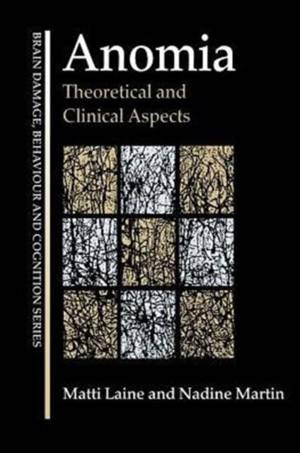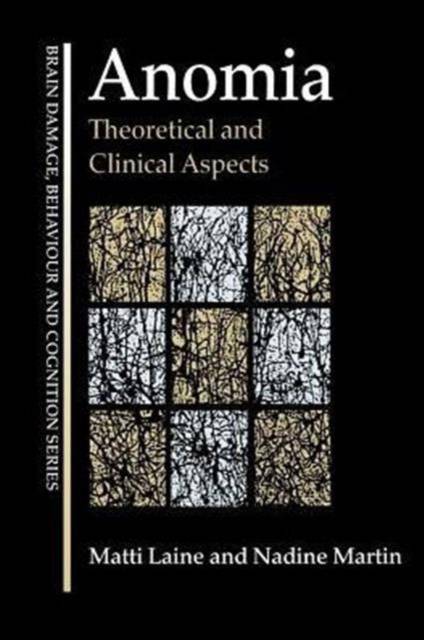
- Afhalen na 1 uur in een winkel met voorraad
- Gratis thuislevering in België vanaf € 30
- Ruim aanbod met 7 miljoen producten
- Afhalen na 1 uur in een winkel met voorraad
- Gratis thuislevering in België vanaf € 30
- Ruim aanbod met 7 miljoen producten
Omschrijving
Naming is a fundamental aspect of language. Word-finding deficit, anomia, is the most common symptom of language dysfunction occurring after brain damage. Besides its practical importance, anomia gives a fascinating view on the inner workings of language in the brain. There has been significant progress in the study of anomia in recent years, including advances in neuroimaging research and in psycholinguistic modelling. Written by two internationally known researchers in the field, this book provides a broad, integrated overview of current research on anomia. Beginning with an overview of psycholinguistic research on normal word retrieval as well as the influential cognitive models of naming, the book goes on to review the major forms of anomia. Neuroanatomical aspects, clinical assessment, and therapeutic approaches are reviewed and evaluated.
Anomia: Theoretical and Clinical Aspects gives a thorough and up-to-date examination of the research and treatment of naming disorders in neurological patients. It covers both theory and practice and provides invaluable reading for researchers and practitioners in speech and language disorders, neuropsychology and neurology, as well for advanced undergraduate students and graduate students in the field.
Specificaties
Betrokkenen
- Auteur(s):
- Uitgeverij:
Inhoud
- Aantal bladzijden:
- 184
- Taal:
- Engels
- Reeks:
Eigenschappen
- Productcode (EAN):
- 9780415645881
- Verschijningsdatum:
- 30/11/2012
- Uitvoering:
- Paperback
- Formaat:
- Trade paperback (VS)
- Afmetingen:
- 156 mm x 234 mm
- Gewicht:
- 267 g

Alleen bij Standaard Boekhandel
Beoordelingen
We publiceren alleen reviews die voldoen aan de voorwaarden voor reviews. Bekijk onze voorwaarden voor reviews.











